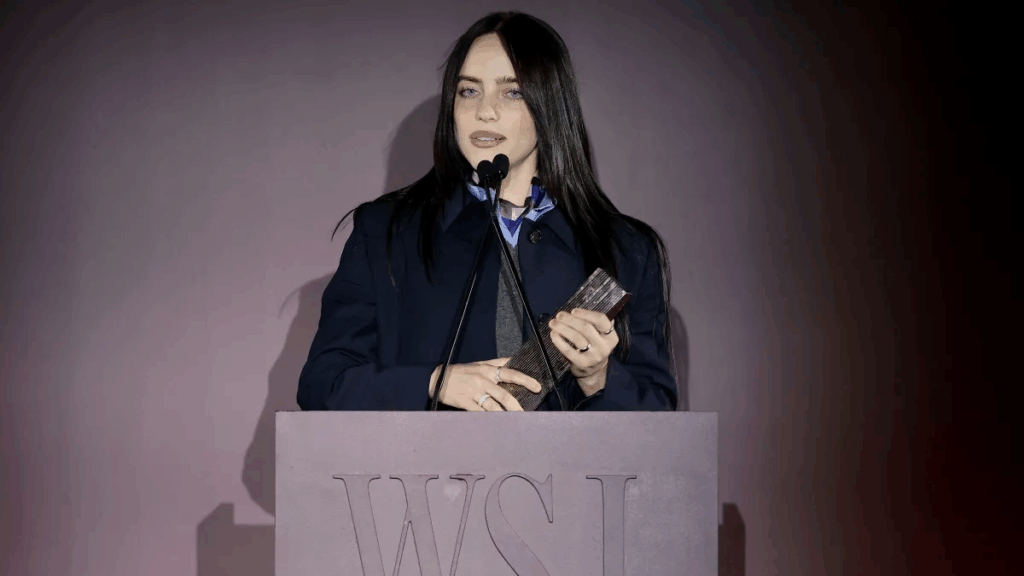RM Why the Backlash Against Billie Eilish? Because Speaking the Truth About Billionaires Is Still Taboo

What exactly went down with Billie Eilish at the Wall Street Journal Magazine Innovator Awards last week? The incident offers a perfect snapshot of today’s media environment — full of instant information, hot takes, and predictable outrage.
You can easily find every detail: host Stephen Colbert’s exact words as he introduced Eilish and announced that the 23-year-old pop star was donating $11.5 million (£8.8m) to support efforts against food insecurity and the climate crisis. Then came Eilish’s acceptance speech, in which she reflected:
“We’re in a time right now where the world is really, really bad and really dark, and people need empathy and help more than ever, especially in our country.”
But it was her next comment that lit up the internet:
“Love you all, but there’s a few people in here who have a lot more money than me. If you’re a billionaire, why are you a billionaire? No hate, but yeah, give your money away, shorties.”
Soon after, headlines spread claiming that Mark Zuckerberg, attending the event while his wife Priscilla Chan received an award, appeared visibly unamused — reportedly declining to clap. Online sleuths then began dissecting Eilish’s use of “shorties”: was it a playful nickname, a term of endearment, or a jab at Zuckerberg’s (and Jeff Bezos’s) 5’7″ height?
Predictably, the backlash rolled in. “Like many Gen Zers,” one Sky News Australia presenter scoffed, “she sounds like a bit of a socialist — even though she’s sitting on millions herself.” The host then pivoted to Zohran Mamdani, New York City’s new mayor, pointing out that his support supposedly comes from “high-income earners.”
And so the unwritten rules of billionaire criticism are once again enforced:
- You’re not allowed to question obscene wealth if you have any money of your own.
- If you’re in politics, you can’t even be supported by wealthy people.
There’s no clear threshold for being “poor enough” to speak out. You could work minimum wage, but if you’re educated or come from a middle-class background, that’s still too privileged. You could even give away every cent you earn — yet if your words carry influence, you’re still considered part of the elite.
Of course, there are contradictions everywhere. A self-made millionaire from a working-class background is still allowed to use that identity to defend wealth, but someone with empathy for others is accused of hypocrisy. Still, the larger question remains: if the only people “qualified” to criticize billionaires are those with nothing, who wrote those rules in the first place?
We talk endlessly about billionaires — their companies, their politics, their influence — yet rarely ask the most basic question: should billionaires exist at all? Many across the political spectrum, not just Gen Z or New York progressives, agree that extreme wealth harms democracy, suppresses wages, manipulates public opinion, and warps social priorities. Their philanthropy often doubles as image control, and some seem more interested in surviving the apocalypse than preventing it.
Yet we stop short of the obvious conclusion: maybe the very idea of holding a billion dollars is inherently wrong.
And now, with one offhand remark, Billie Eilish has dragged that forbidden idea into the spotlight. For a while, it seemed that bold political statements from young female pop stars had peaked — that Charli XCX’s Brat, which redefined womanhood through chaos, pleasure, and defiance, was the final word. But it turns out, that was just the beginning.
